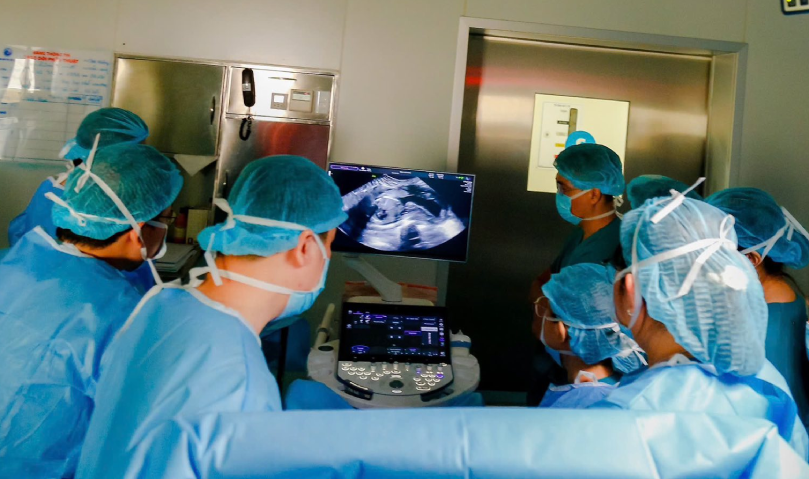“Behind the moment blood first flowed through the fetus’s aortic valve lay hundreds of hours of image analysis, meticulous planning, and interdisciplinary consultations,” he said.
This groundbreaking procedure marks a major advancement in Vietnam’s fetal medicine capabilities, offering new hope to unborn children previously diagnosed with fatal congenital defects.
The achievement stems from an integrated modern medical ecosystem that includes high-level prenatal diagnostics, image-guided endoscopic surgery, advanced anesthesia, and neonatal intensive care for complex cases.
Professor Thuan affirmed that Vietnam’s medical professionals have mastered super-specialized techniques once available only at top global centers.
The decision by Singaporean doctors to refer the patient to Vietnam is a testament to the country’s growing reputation in the region. This progress positions Vietnam closer to becoming a fetal and personalized medicine hub in Southeast Asia and Asia at large.
Vietnamese hospitals are increasingly attracting international patients thanks to high-quality care approaching global standards, combined with affordable costs.
Professor Thuan noted that the Ministry of Health will continue developing legal frameworks, public-private cooperation mechanisms, and favorable conditions to help leading hospitals become trusted destinations for regional and global patients, supporting the growth of high-quality medical tourism.
The patient, a 41-year-old woman from Singapore, conceived her first child after more than a decade of infertility through IVF. At 25 weeks, the fetus weighed 600 grams and was diagnosed with a rare congenital heart defect - aortic atresia - with a left ventricle only 1.4 mm wide, roughly the size of a pencil tip. Singaporean doctors assessed the fetus’s survival chances as extremely low and referred the case to Vietnam.
Vietnamese doctors successfully performed the fetal heart intervention, which took twice as long as previous cases due to the complexity.
Dr. Tran Ngoc Hai, Director of Tu Du Hospital, said the mother is now under close monitoring, with doctors focused on extending the pregnancy as long as possible.
She also has an autoimmune disorder similar to lupus, which poses serious risks for both mother and child. A multidisciplinary team, including hematologists, is coordinating her care.
Once the pregnancy stabilizes further, Vietnamese doctors plan to support her return to Singapore for continued monitoring.
Phuong Thuy
